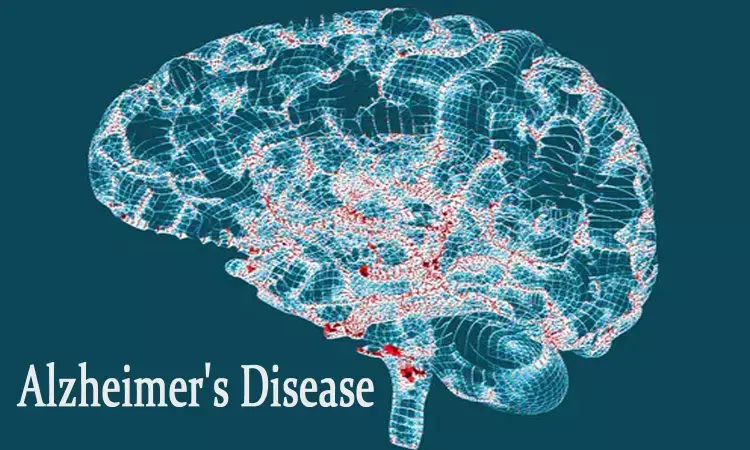- Home
- Medical news & Guidelines
- Anesthesiology
- Cardiology and CTVS
- Critical Care
- Dentistry
- Dermatology
- Diabetes and Endocrinology
- ENT
- Gastroenterology
- Medicine
- Nephrology
- Neurology
- Obstretics-Gynaecology
- Oncology
- Ophthalmology
- Orthopaedics
- Pediatrics-Neonatology
- Psychiatry
- Pulmonology
- Radiology
- Surgery
- Urology
- Laboratory Medicine
- Diet
- Nursing
- Paramedical
- Physiotherapy
- Health news
- Fact Check
- Bone Health Fact Check
- Brain Health Fact Check
- Cancer Related Fact Check
- Child Care Fact Check
- Dental and oral health fact check
- Diabetes and metabolic health fact check
- Diet and Nutrition Fact Check
- Eye and ENT Care Fact Check
- Fitness fact check
- Gut health fact check
- Heart health fact check
- Kidney health fact check
- Medical education fact check
- Men's health fact check
- Respiratory fact check
- Skin and hair care fact check
- Vaccine and Immunization fact check
- Women's health fact check
- AYUSH
- State News
- Andaman and Nicobar Islands
- Andhra Pradesh
- Arunachal Pradesh
- Assam
- Bihar
- Chandigarh
- Chattisgarh
- Dadra and Nagar Haveli
- Daman and Diu
- Delhi
- Goa
- Gujarat
- Haryana
- Himachal Pradesh
- Jammu & Kashmir
- Jharkhand
- Karnataka
- Kerala
- Ladakh
- Lakshadweep
- Madhya Pradesh
- Maharashtra
- Manipur
- Meghalaya
- Mizoram
- Nagaland
- Odisha
- Puducherry
- Punjab
- Rajasthan
- Sikkim
- Tamil Nadu
- Telangana
- Tripura
- Uttar Pradesh
- Uttrakhand
- West Bengal
- Medical Education
- Industry
High BP at night linked to increased Alzheimer's disease risk: Study

Higher blood pressure at night than in daytime may be a risk factor for Alzheimer's disease in older men. This is suggested by a new study from researchers at Uppsala University, now published in the journal Hypertension.
'Dementia' is an umbrella term used to describe a category of symptoms marked by behavioural changes and gradually declining cognitive and social abilities. Numerous factors, including hypertension (high blood pressure), affect the risk of developing these symptoms.
Under healthy conditions, blood pressure (BP) varies over 24 hours, with lowest values reached at night. Doctors call this nocturnal blood pressure fall 'dipping'. However, in some people, this BP pattern is reversed: their nocturnal BP is higher than in daytime. This blood pressure profile is known as 'reverse dipping'.
"The night is a critical period for brain health. For example, in animals, it has previously been shown that the brain clears out waste products during sleep, and that this clearance is compromised by abnormal blood pressure patterns. Since the night also represents a critical time window for human brain health, we examined whether too high blood pressure at night, as seen in reverse dipping, is associated with a higher dementia risk in older men," says Christian Benedict, Associate Professor at Uppsala University's Department of Neuroscience, and senior author of the study.
To test this hypothesis, the researchers used observational data from one thousand Swedish older men, who were followed for a maximum of 24 years. The included men were in their early seventies at the beginning of the study
"The risk of getting a dementia diagnosis was 1.64 times higher among men with reverse dipping compared to those with normal dipping. Reverse dipping mainly increased the risk of Alzheimer's disease, the most common form of dementia," says Xiao Tan, postdoctoral fellow from the same department and first author of this research.
"Our cohort consisted only of older men. Thus, our results need to be replicated in older women," concludes Benedict.
According to the researchers, an interesting next step would be to investigate whether the intake of antihypertensive (BP-lowering) drugs at night can reduce older men's risk of developing Alzheimer's disease.
Hina Zahid Joined Medical Dialogue in 2017 with a passion to work as a Reporter. She coordinates with various national and international journals and association and covers all the stories related to Medical guidelines, Medical Journals, rare medical surgeries as well as all the updates in the medical field. Email: editorial@medicaldialogues.in. Contact no. 011-43720751
Dr Kamal Kant Kohli-MBBS, DTCD- a chest specialist with more than 30 years of practice and a flair for writing clinical articles, Dr Kamal Kant Kohli joined Medical Dialogues as a Chief Editor of Medical News. Besides writing articles, as an editor, he proofreads and verifies all the medical content published on Medical Dialogues including those coming from journals, studies,medical conferences,guidelines etc. Email: drkohli@medicaldialogues.in. Contact no. 011-43720751


